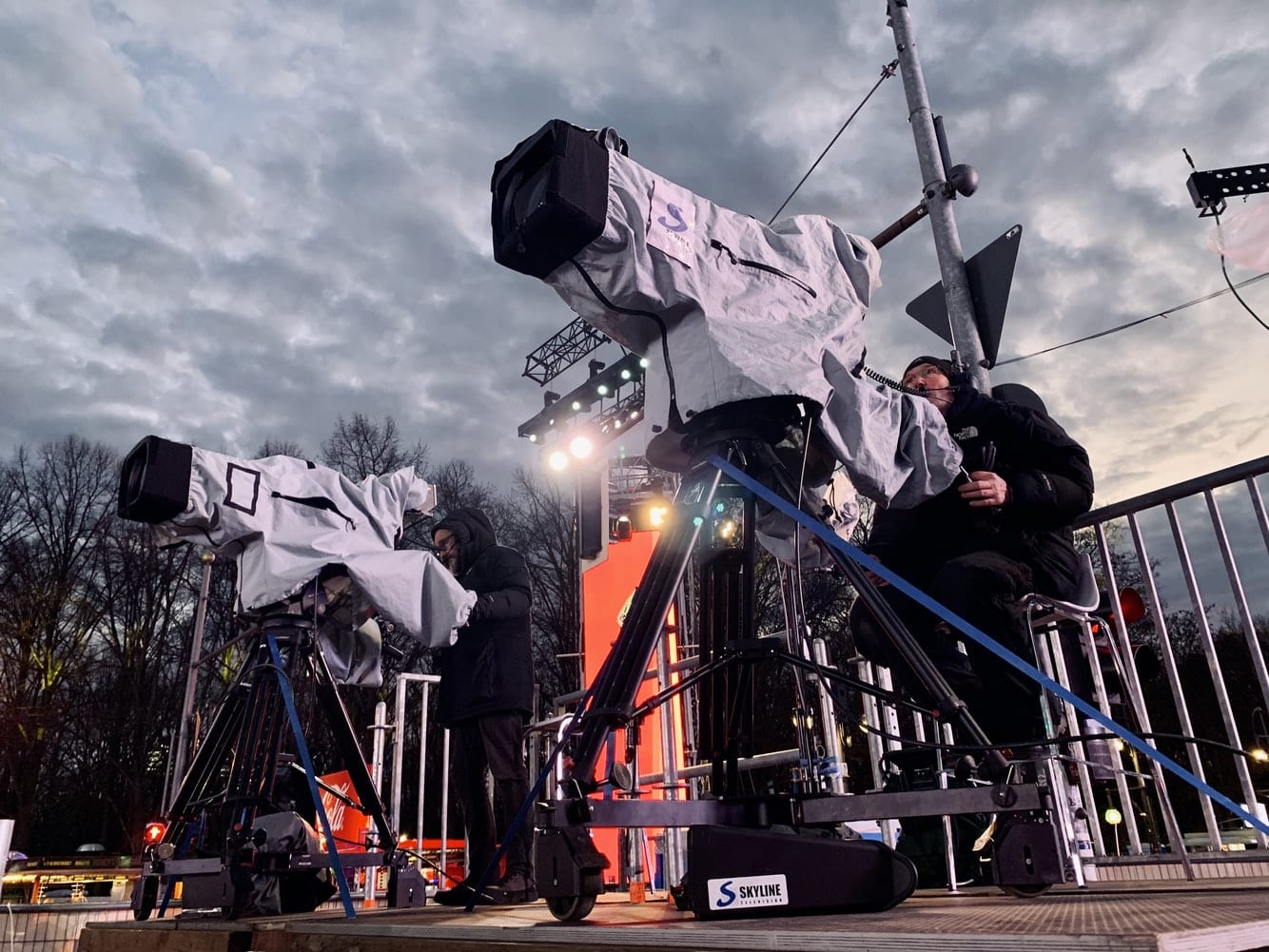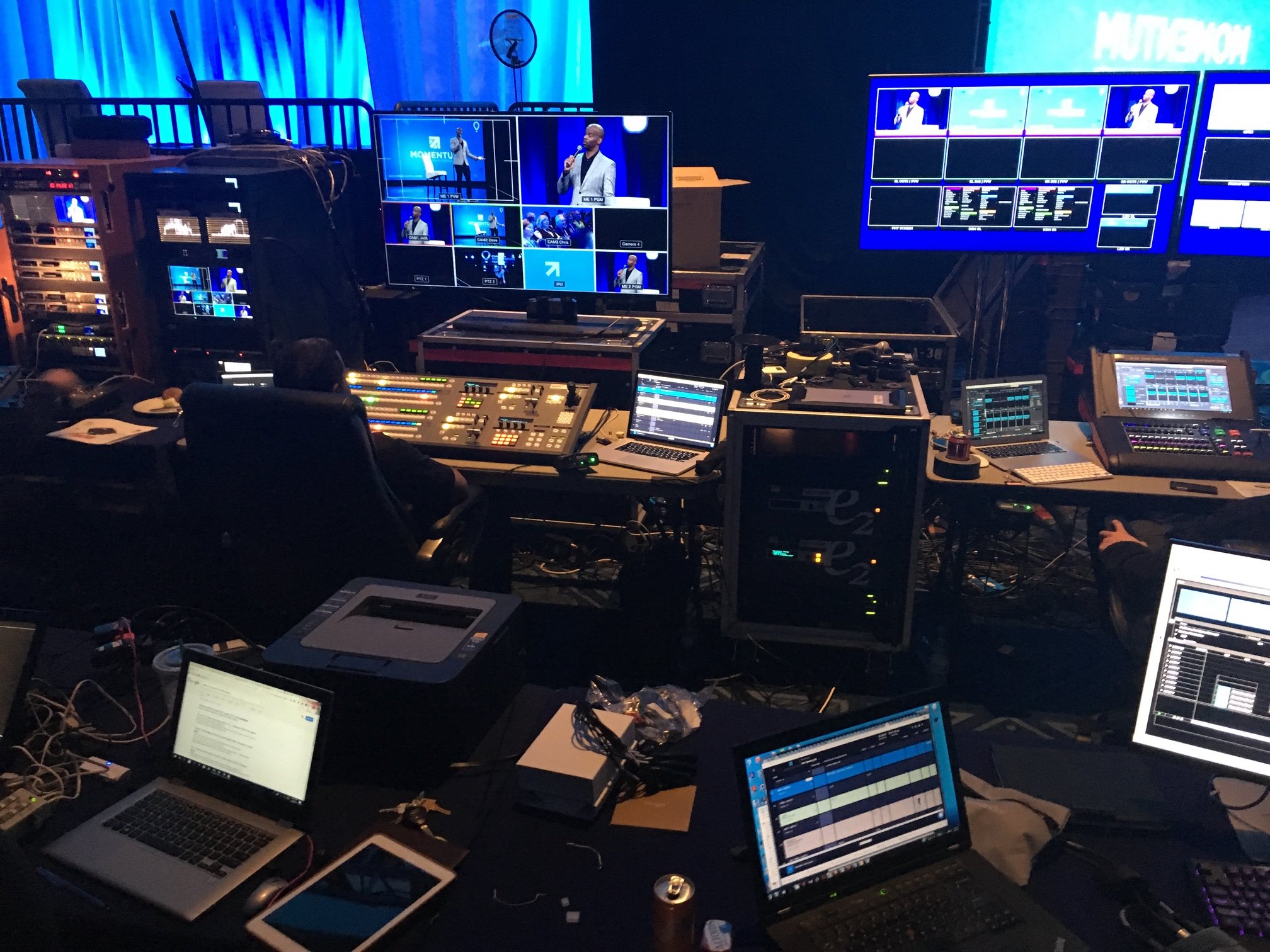Exactly How Event Production Works: A Comprehensive Look at the Process
Event production is a facility and organized procedure that needs cautious preparation and execution. It begins with developing clear objectives and understanding the target audience. Each step, from budgeting to place option, plays a vital function in ensuring success. As the procedure unravels, various elements should line up effortlessly. Yet, the nuances of this intricate operation often go undetected. What are the essential phases that add to a remarkable event?

The Preliminary Planning Stage
When starting on event production, cautious planning is vital to guarantee a successful outcome. The initial drawing board functions as the foundation for all succeeding efforts. During this phase, event producers have to specify the event's objective and goals clearly. Determining the target audience aids customize the experience and messaging, assuring relevance and engagement.Producers should also take into consideration the event format, whether it be in-person, virtual, or hybrid, as this will influence different logistical elements. Selecting an ideal date and venue is crucial, as it impacts availability and availability.Furthermore, constructing a reputable team is fundamental for dividing obligations and improving interaction. Establishing a timeline with landmarks warranties all tasks are completed on time. This stage includes thorough study, consisting of recognizing potential obstacles and creating techniques to minimize threats. Eventually, a well-structured initial planning stage sets the tone for a successful event production journey.

Budgeting and Resource Allocation
In event production, efficient budgeting and resource allotment are vital for success - event production charlotte. Developing economic parameters establishes the structure for all succeeding decisions, while source circulation approaches guarantee that every part of the event is sufficiently supported. With each other, these components assist maintain control over expenditures and enhance making use of available resources
Establishing Financial Parameters
Developing financial criteria is vital to the success of any event production, as it sets the structure for reliable budgeting and source allotment. This process starts with specifying the overall budget, which includes all elements of the event, consisting of venue costs, wedding catering, and advertising and marketing. By recognizing offered funds, event planners can prioritize expenses and assign sources appropriately. On top of that, it is vital to carry out thorough marketing research to prepare for potential costs and recognize funding resources, such as sponsorships or ticket sales. Establishing clear economic criteria additionally help in risk monitoring, allowing organizers to reserve backup funds for unforeseen expenditures. Eventually, a well-defined budget serves as a roadmap, guiding the event production team towards achieving their objectives while preserving monetary control.
Source Circulation Strategies
Effective source circulation methods are vital for optimizing the impact of an event while adhering to budget restrictions. Successful event production requires a meticulous technique to budgeting and source allocation. Coordinators need to focus on essential aspects such as place, event catering, and innovation, ensuring that funds are assigned to areas that enhance attendee experience. An in-depth budget plan must describe anticipated expenses and determine locations for prospective cost financial savings, such as bargaining with suppliers or discovering sponsorship possibilities. Additionally, tracking expenditures throughout the preparation process assists prevent overspending. By utilizing critical resource circulation, event producers can deliver a remarkable experience while keeping monetary duty, eventually contributing to the general success of the event.
Venue Option and Logistics
Selecting the right place is important to the success of any type of event, as it establishes the stage for the overall experience. Place option includes evaluating numerous elements, including capability, access, and location. Planners have to take into consideration the target market and the nature of the event, making sure the location aligns with the event's goals.Logistics play a considerable duty in this procedure, including setups for seating, audiovisual tools, and catering services. A well-chosen venue should help with smooth flow for attendees and personnel, improving engagement.Additionally, evaluating prospective locations for amenities like car parking, bathrooms, and emergency departures is necessary for safety and ease. The timeline for securing the place is likewise crucial, as preferred locations may reserve quickly - event production charlotte. Consequently, detailed planning and timely execution can ultimately add to a seamless event experience, making location selection and logistics basic parts of successful event production
Imaginative Principle Growth
While the venue sets the physical stage, innovative idea advancement shapes the event's identification and narrative. This procedure starts with recognizing the event's purpose and target market, enabling event producers to develop an engaging theme that reverberates with attendees. Conceptualizing sessions commonly include diverse point of views, fostering cutting-edge concepts that align with the event's goals.Once a style is developed, visual aspects such as shade palettes, signage, and decor are designed to enhance the overall environment. Storytelling strategies might also be incorporated to develop an engaging trip for individuals, assuring a memorable experience. Additionally, factors to consider relating to enjoyment, tasks, and interactive parts are lined up with the selected principle, enhancing the motif throughout the event.Ultimately, effective innovative concept development warranties that every aspect of the event works cohesively, leaving an enduring impression on attendees and fulfilling the event's goals. This fundamental job prepares for succeeding preparation and execution stages.
Working together With Suppliers and Providers
Successful event production depends upon reliable cooperation with vendors and distributors. Choosing reputable companions, discussing contracts effectively, and ensuring timely deliveries are important actions in this procedure. Each of these variables contributes greatly to the overall success and smooth execution of an event.
Selecting Reliable Partners
Exactly how can event organizers guarantee a seamless production experience? Choosing reputable partners is crucial in attaining this goal. Event organizers should conduct thorough research to recognize suppliers and suppliers with a tried and tested record of quality. This includes examining referrals, assessing profiles, and examining consumer feedback. Planners ought to prioritize partners that demonstrate expertise, prompt communication, and a readiness to collaborate. Building solid relationships fosters trust and enables quick analytic during find out here now the event. Additionally, it is beneficial to pick neighborhood suppliers that recognize the location and regional logistics. Ultimately, a successful event pivots on the synergy between coordinators and their partners, making certain that every element of production runs efficiently and click site successfully.
Discussing Agreements Successfully
Effective arrangement of agreements is an important action in the cooperation between event coordinators and their suppliers and vendors. This process involves clear communication of assumptions, deliverables, and timelines. Organizers ought to carry out extensive study on market prices and sector criteria to develop a baseline for settlements. It is necessary to develop a collaborative ambience, encouraging open discussion about terms, prices, and potential backups. Organizers should additionally focus on comprehending the vendor's capacities and constraints to align their needs efficiently. Adaptability can bring about equally advantageous arrangements, promoting lasting partnerships. Crafting distinct contracts that consist of particular efficiency metrics can help guarantee liability, eventually resulting in successful event implementation and satisfaction for all celebrations included.
Ensuring Prompt Shipments
Timely deliveries are crucial for the smooth execution of any type of event, needing attentive cooperation between organizers and their suppliers and suppliers. Effective interaction is vital, as it helps establish clear assumptions relating to distribution schedules, quantities, and details requirements. Planners frequently create detailed timelines to lay out crucial turning points, making sure all events remain lined up throughout the process. Normal check-ins with suppliers can help identify possible hold-ups early, permitting aggressive options. In addition, constructing solid partnerships with dependable vendors cultivates trust fund and responsibility, which can result in much better service and prioritization. By prioritizing these joint initiatives, organizers can minimize interruptions, therefore improving the overall performance of event production and making sure that all needed materials and solutions arrive as prepared.
Advertising and Promo Strategies
While arranging an occasion, the success of marketing and promo check out this site approaches can greatly affect presence and involvement. Reliable techniques commonly include a mix of electronic advertising and marketing, conventional marketing, and grassroots outreach. Making use of social media sites systems permits real-time interaction and targeted marketing, reaching details demographics effectively. Email advertising and marketing campaigns can additionally engage possible guests with tailored material and reminders.Collaborations with influencers or industry leaders can also boost integrity and broaden reach. Producing engaging material, such as videos or blogs, aids to produce buzz and sustain passion leading up to the event. Furthermore, leveraging early-bird price cuts and special advantages can incentivize ticket purchases.Promoting with standard networks, such as posters or neighborhood media, stays pertinent, particularly in community-focused occasions. A detailed strategy that incorporates numerous strategies warranties maximum exposure and interaction, inevitably contributing to the event's success and the development of an unforgettable experience for participants.
On-Site Implementation and Monitoring
On-site execution and administration are important parts that determine the total success of an occasion. Efficient coordination during the event guarantees that all components line up with the intended agenda. Event supervisors look after logistics, including vendor control, tools arrangement, and guest services. Keeping track of timelines and dealing with any type of unforeseen problems are fundamental for maintaining a seamless experience.The personnel plays a substantial function, as trained personnel are accountable for different jobs such as enrollment, details circulation, and technological assistance. Communication amongst staff member is crucial; it cultivates a collaborative environment and allows fast resolution of challenges.Additionally, safety methods need to be complied with, guarding the well-being of all attendees. Post-event examinations are likewise component of on-site management, supplying understandings for future renovations. By concentrating on these aspects, event producers can create memorable experiences that meet or go beyond guest assumptions while achieving the event's purposes.
Frequently Asked Questions
Exactly how Do I Choose the Right Event Theme?
Selecting the right event style entails taking into consideration the target audience, event objective, and venue. Investigating present patterns and collecting input from stakeholders can also motivate innovative ideas that reverberate and create a remarkable experience.

What Are Typical Blunders in Event Production?
Typical mistakes in event production often include insufficient preparation, bad interaction amongst group members, budget plan mismanagement, neglecting to think about the target market's demands, and failing to perform a complete post-event evaluation for future improvements.
How Can I Determine Event Success?
To gauge event success, one can analyze attendee satisfaction, interaction levels, budget plan adherence, and post-event comments. Trick performance signs, such as ticket sales and social networks interactions, likewise supply beneficial understandings into total efficiency.
What Should I Do if It Drizzles on the Event Day?
In case of rain on the day, the coordinator should implement backup strategies, such as safeguarding outdoors tents or relocating tasks inside your home. Interaction with attendees concerning adjustments is necessary to assure a smooth experience despite weather condition difficulties.
Exactly How Can I Make Certain Participant Engagement During the Event?
